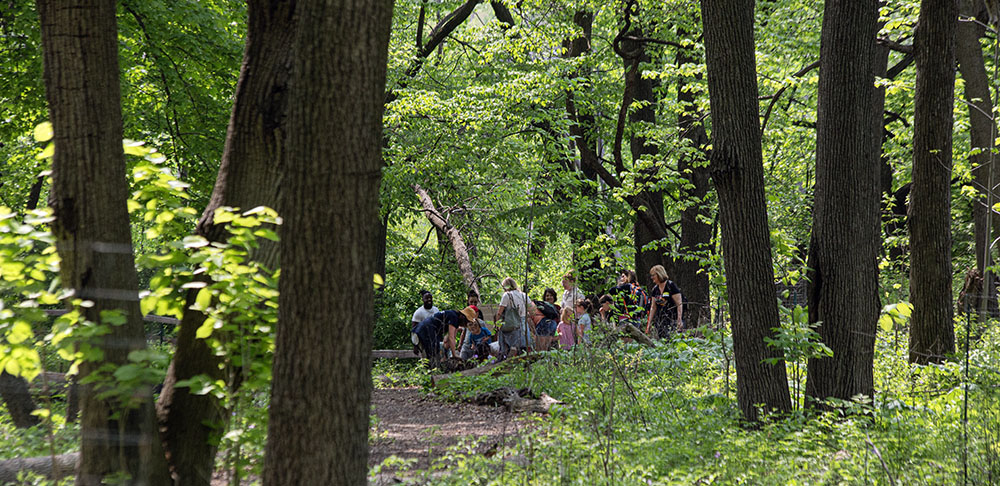
Hawthorn Glen: A Hidden Gem Awaiting Discovery
May 31, 2023 | Topics: Places
By Jonathan Rupprecht
With photographs by Eddee Daniel
Southeastern Wisconsin is full of hidden gems of nature, many of which have been shared on this website. In this case we have another “hidden” gem, except that it’s right in the middle of Milwaukee County (and only a few blocks from my home!) If you drive south on Hawley Road approaching State Street, or if you’re on State Street at 60th Street, you’ve probably seen its sign – but maybe didn’t really notice it. The wooded hillsides bordering these two busy streets give a hint of the treasures inside. This is your invitation to take that hint and stop at Hawthorn Glen!
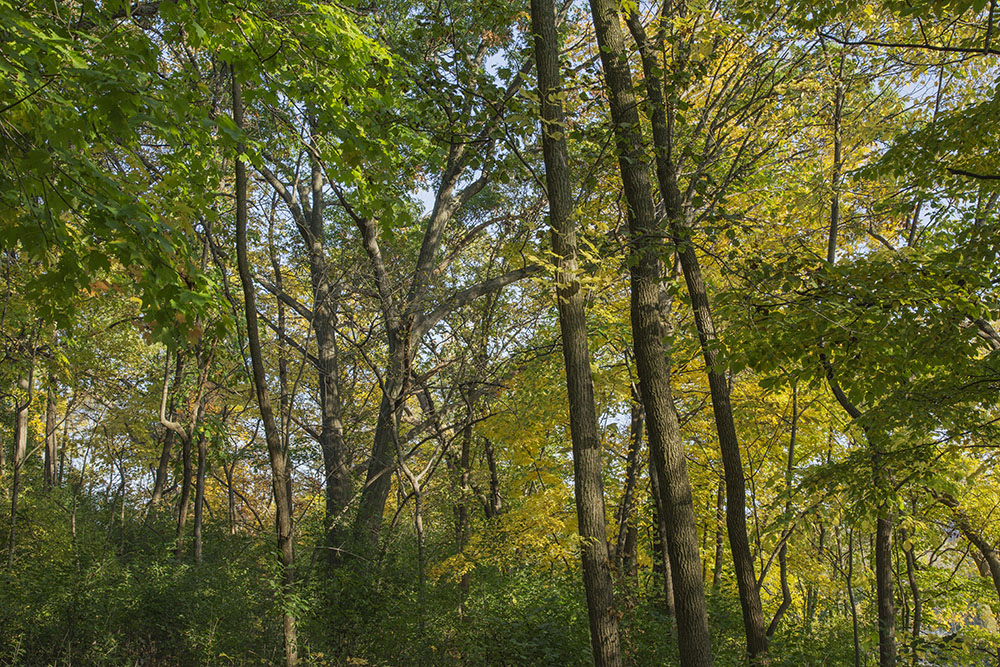
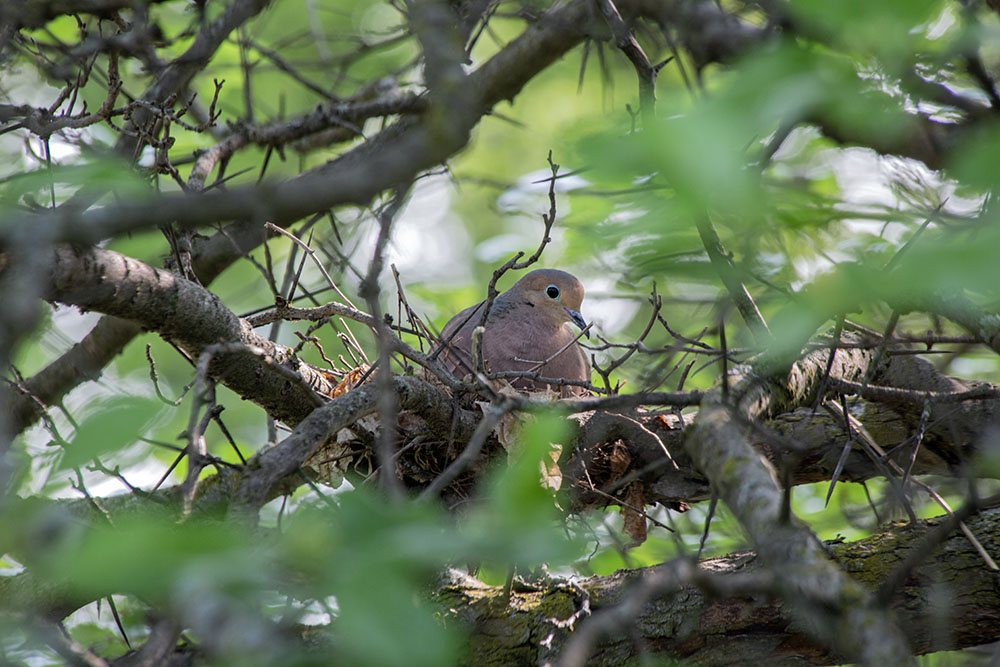
Parking is on 60th Street a block north of State; that is your entrance to natural wonders! Over half of the twenty-five-acre property consists of a woodland with hills and winding paths, wild flowers and wild animals, such as deer, foxes, raccoons, opossums, turkeys—and yes, coyotes have occasionally been sighted. (In deference to the wildlife, dogs are not permitted in the Glen.) At the far end of a soccer field is a little man-made hill for kids to slide down in the winter or roll down in summer. Near the entrance is a large playground. Picnic tables are provided, with a shelter. A small zoo sits outside, while inside is the “Little Nature Museum.” Meadows are planted with prairie grasses and flowers. An attractive Tudor-style brick building holds the museum, office, rest rooms and a classroom with a beautiful stone fireplace.
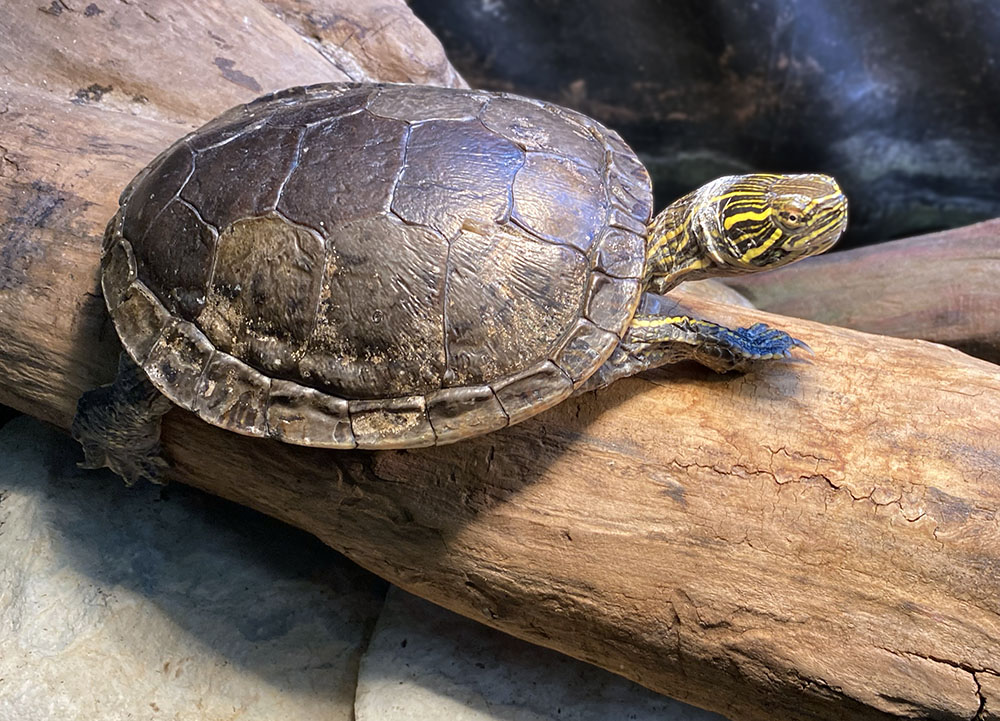
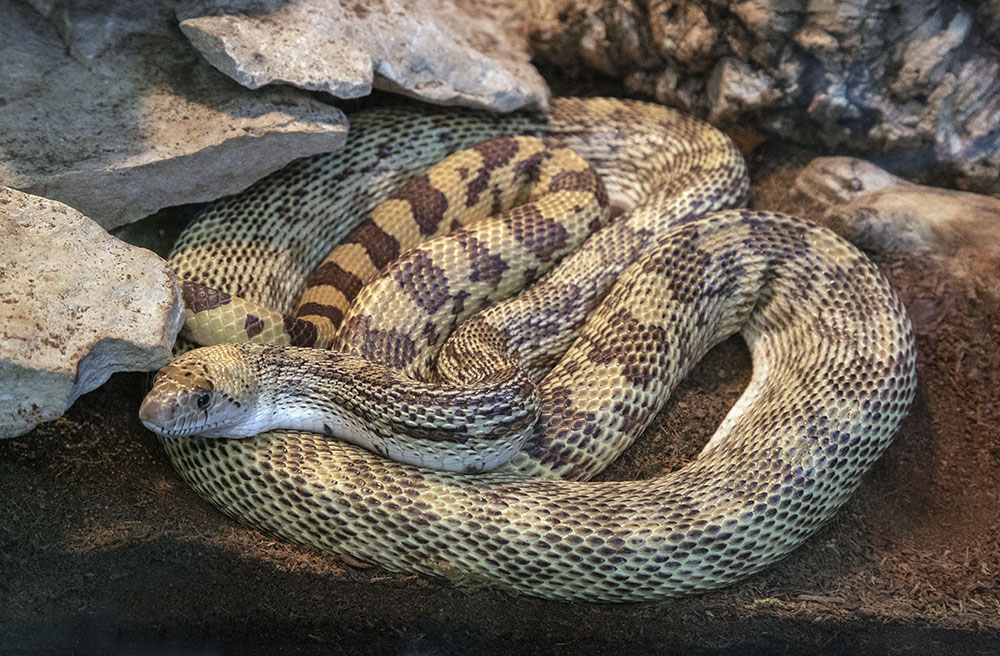
All of this is contained in an area of only about four blocks on each side, although it seems larger when you’re within it. One reason that Hawthorn Glen is not a particularly well-known park may be that technically it’s not a “park.” Rather than being part of Milwaukee’s county or city park systems, it’s owned and operated by Milwaukee Recreation* as an “Outdoor Education Center” (although it is also open to the general public). Evidence for the educational mission of the Glen includes the many spots in the parking lot reserved for school buses; the informative signs near various trees, plants and flowers; the school groups you sometimes meet if you’re there during school hours; and the instructive nature museum.
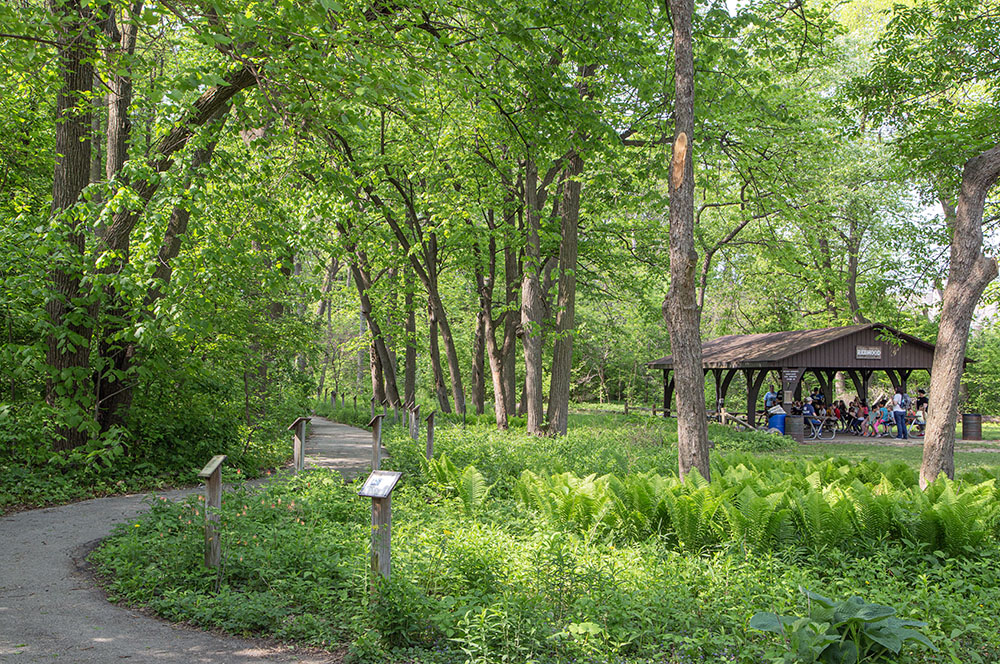
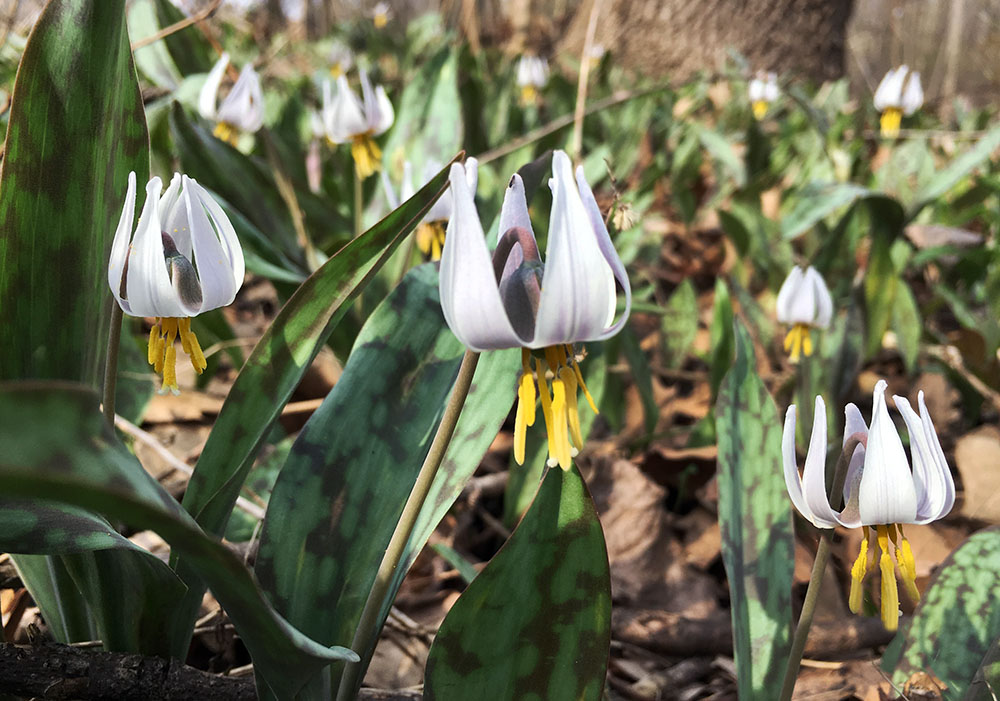
While it’s hard to pin down a detailed history of this gem of nature-in-the-city, its flat land portion is part of a filled-in former quarry that stretched west from the Glen to at least 68th Street. The quarry was in operation from 1889 – 1926. Some of us can remember when the land now occupied by Metcalfe’s supermarket and the stores around it was still being filled in as part of this same quarry. State Street, which is adjacent to the Glen, began as part of what is still called Watertown Plank Road to the west. Legend says that the wooden lintel beams built into the outside walls of the Glen’s office/museum building had once been part of that original plank roadbed (or possibly from the original 27th Street viaduct’s roadbed).
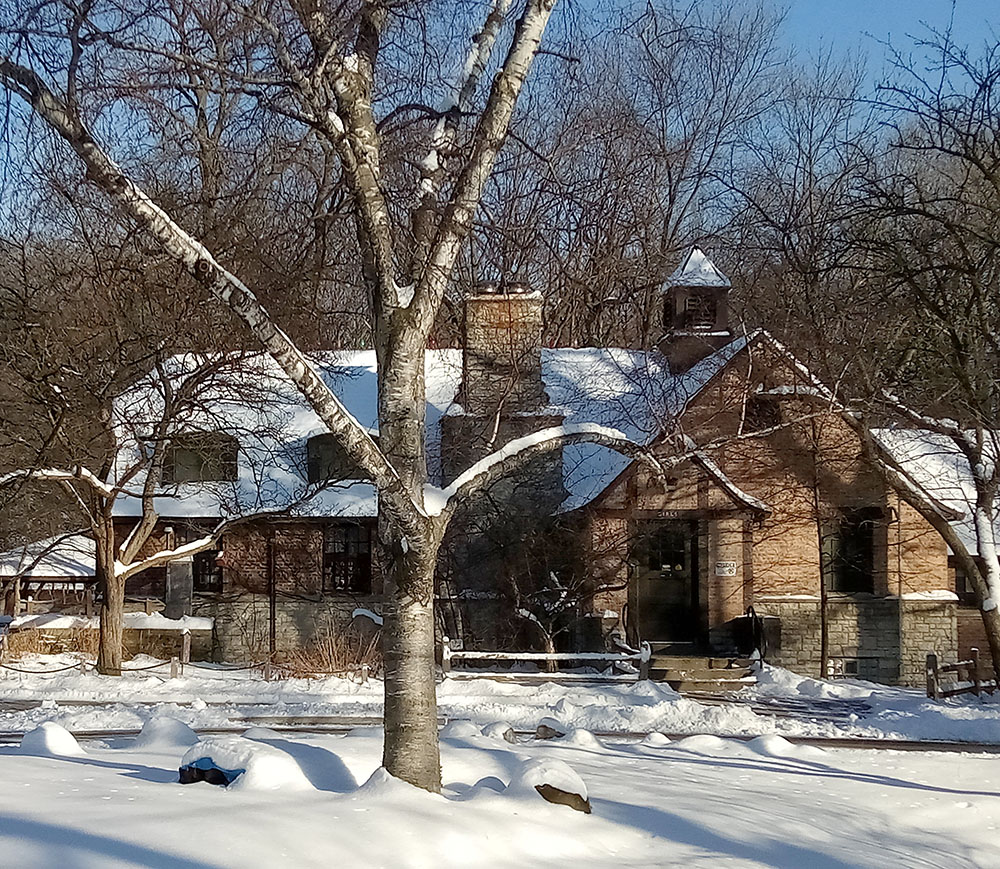
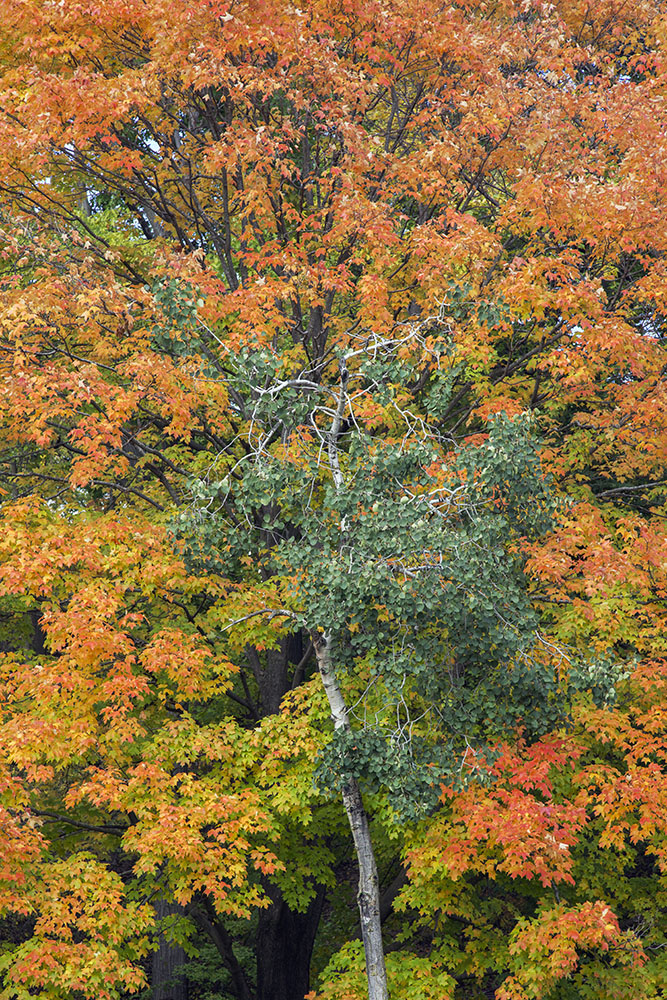
Hawthorn Glen? My first visit to the glen was on a bicycle ride when I was twelve years old, and apparently, I happened to arrive at the peak of the hawthorn season; the edible fruit, like small apples, littered the ground. I wished that I had brought a bag along; I filled all my pockets to overflowing. That was then; this is now: Since those days there has been a tragic invasion by another kind of thorn, buckthorn, which almost eliminated the small native hawthorn trees. However, currently there is an aggressive buckthorn removal program at the Glen and some reappearance of its namesake trees.
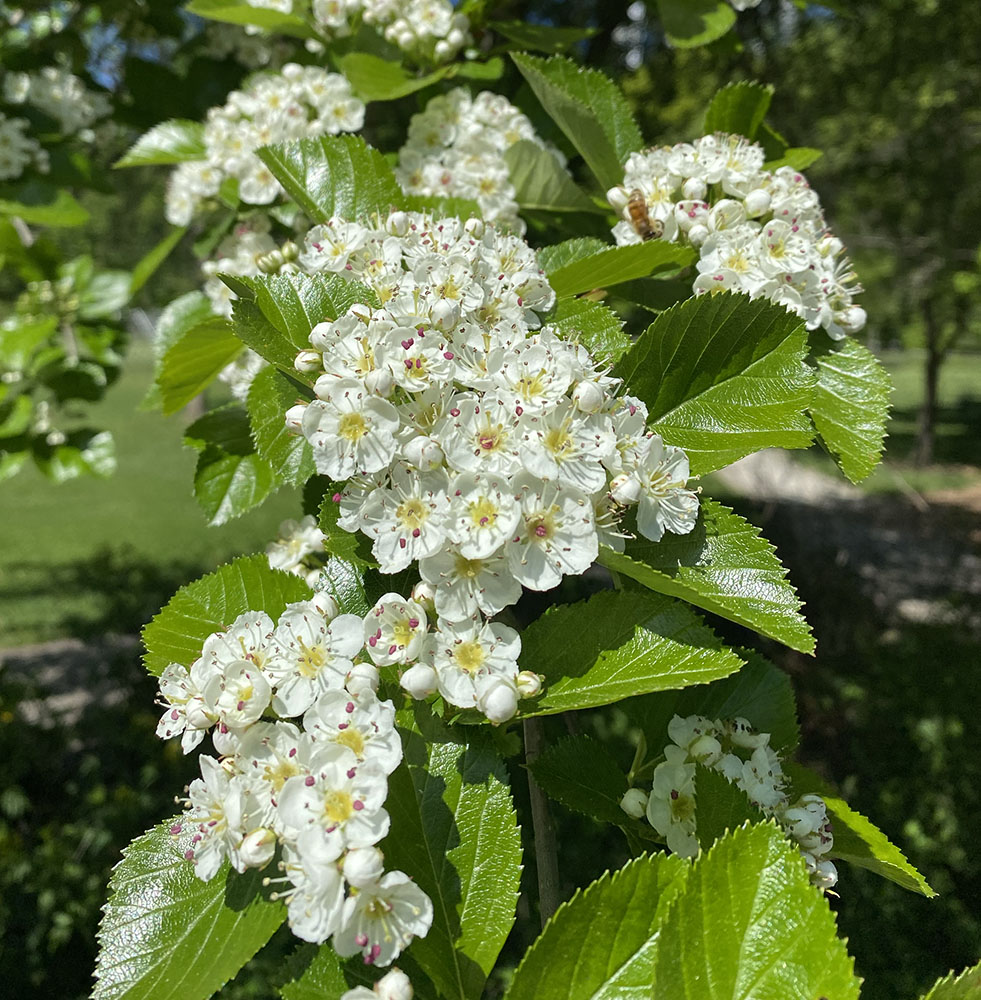
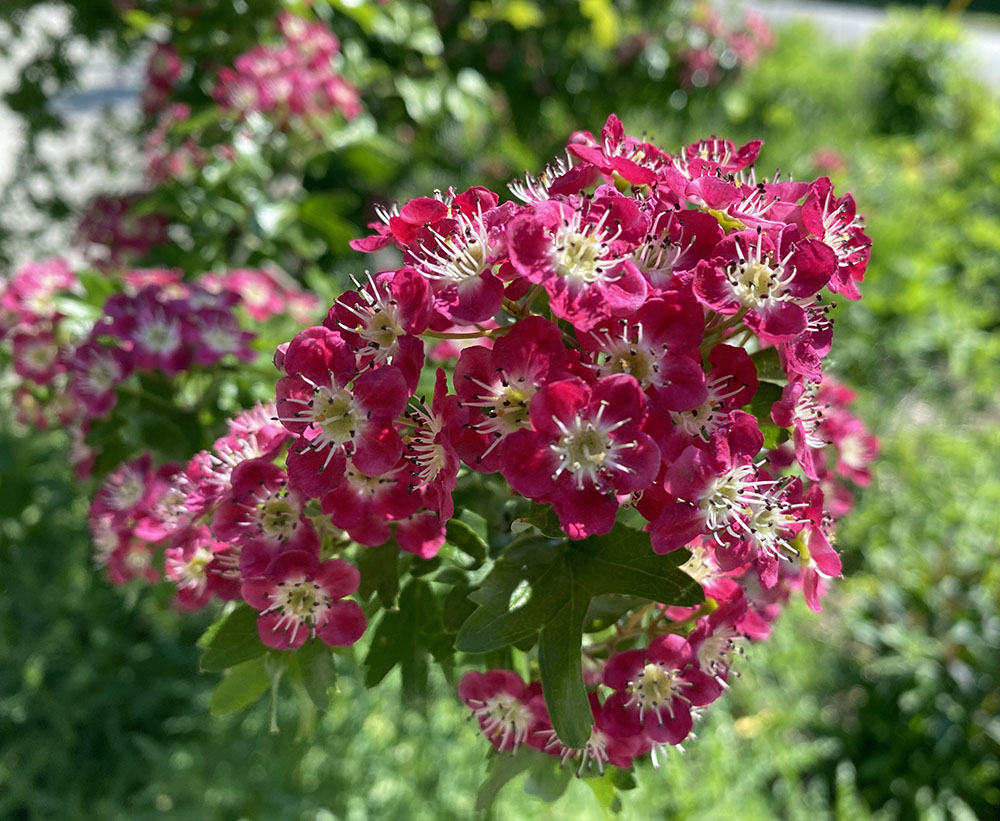
One very noticeable item at the Glen is not a natural feature, but how can we not mention the giant water tower that looms over the northeast corner? This tower goes back to the 1960’s, and is one of only two such towers operated by the Milwaukee Water Works; the other one is at 88th and Waterford, on the Milwaukee/Greenfield border. This tower holds two million gallons of water, and is used daily to save energy when modifying the water pressure in the city’s water lines. It does this by releasing water into the system by gravity instead of using electricity to run pumps.
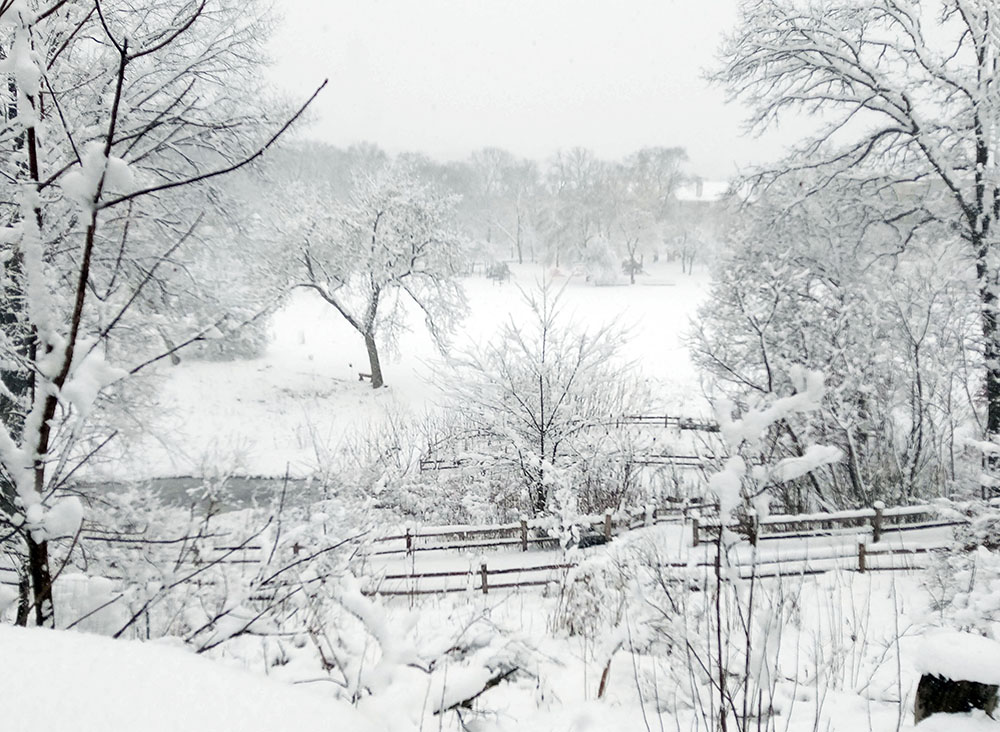
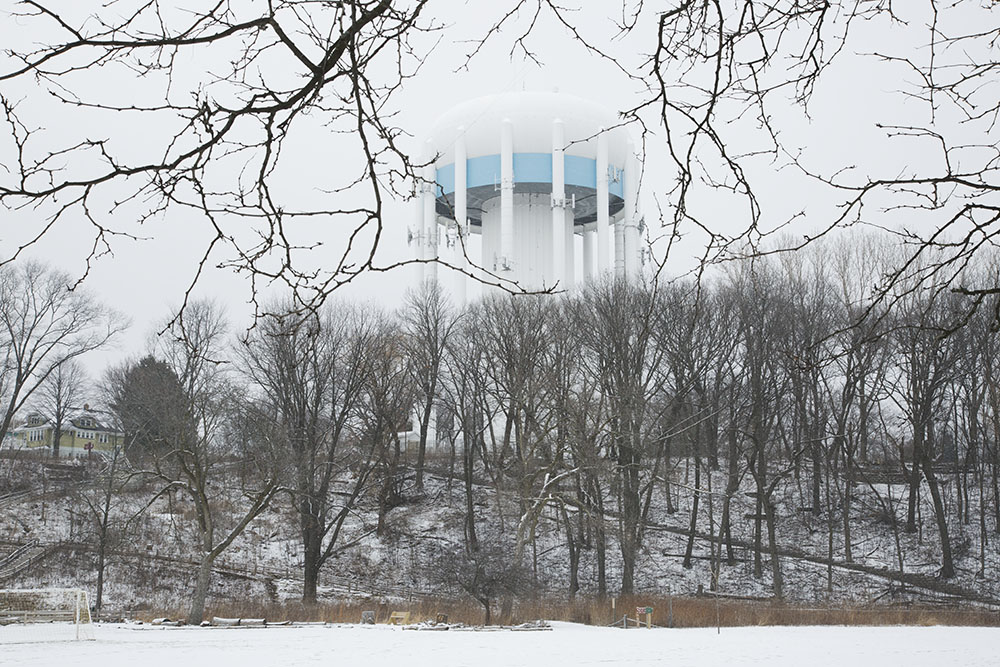
The tower stands atop a steep hillside at the northern border of the Glen. There you can watch water from a natural spring also being drawn by gravity down this hillside, next to a curved pathway, into the pond below. Years ago, this spring’s water was bottled and sold as an upgrade to city water. This curved pathway branches off from the 103-step stairway starting on top near the walk-in entrance at 58th and McKinley. Thus, the Glen offers a pleasant, natural setting for cardio-vascular exercise; no gym fee necessary!
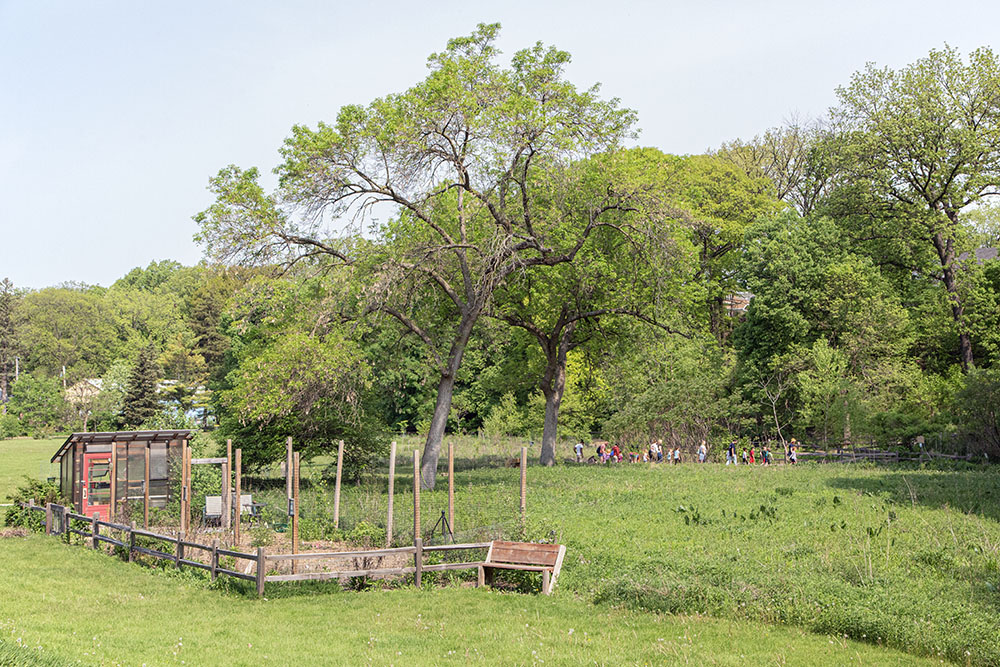
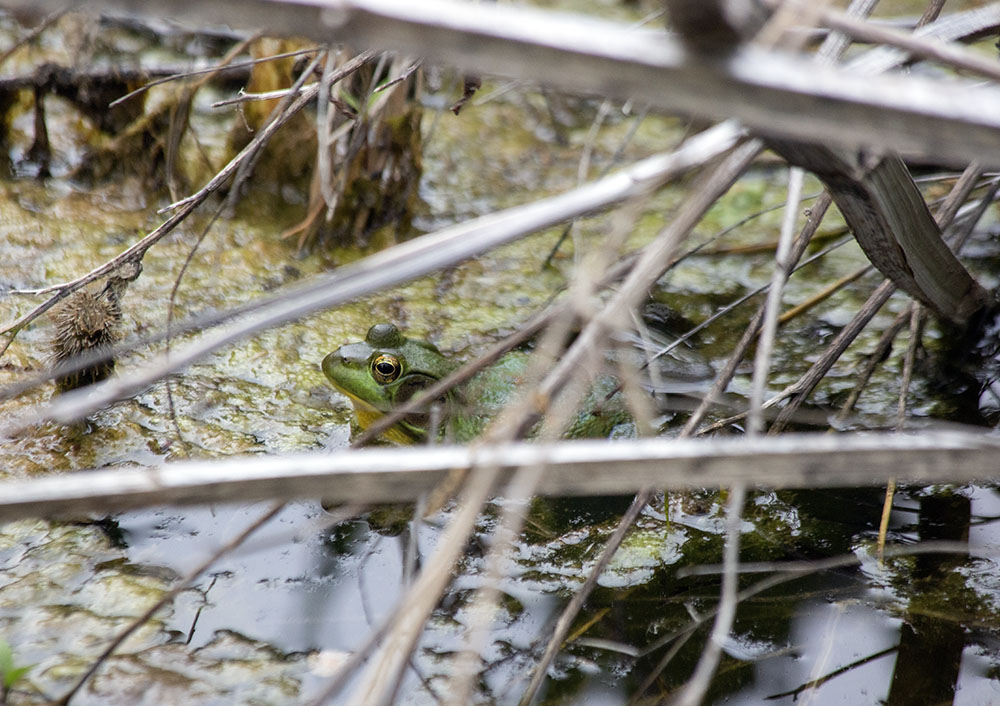
This hillside is also a true fen—basically a hillside wetland, somewhat rare in Wisconsin—with its various springs and seeps. The latter are most easily noticed in winter when ice on the bare hillside reveals their location.
But this hillside’s major claim to fame is that it is an unusual exposure of the same stone that makes up the approximately 900-mile-long Niagara Escarpment, aka Niagara Shelf. Yes, this is the same geological formation—though considerably lower in height here—over which Niagara Falls falls! Visit WILedge to learn more about the Niagara Escarpment’s interesting story, including other places in our state where the cliff edge is prominent, such as Ledge County Park northeast of Horicon as well as High Cliff State Park along the northeast shore of Lake Winnebago.
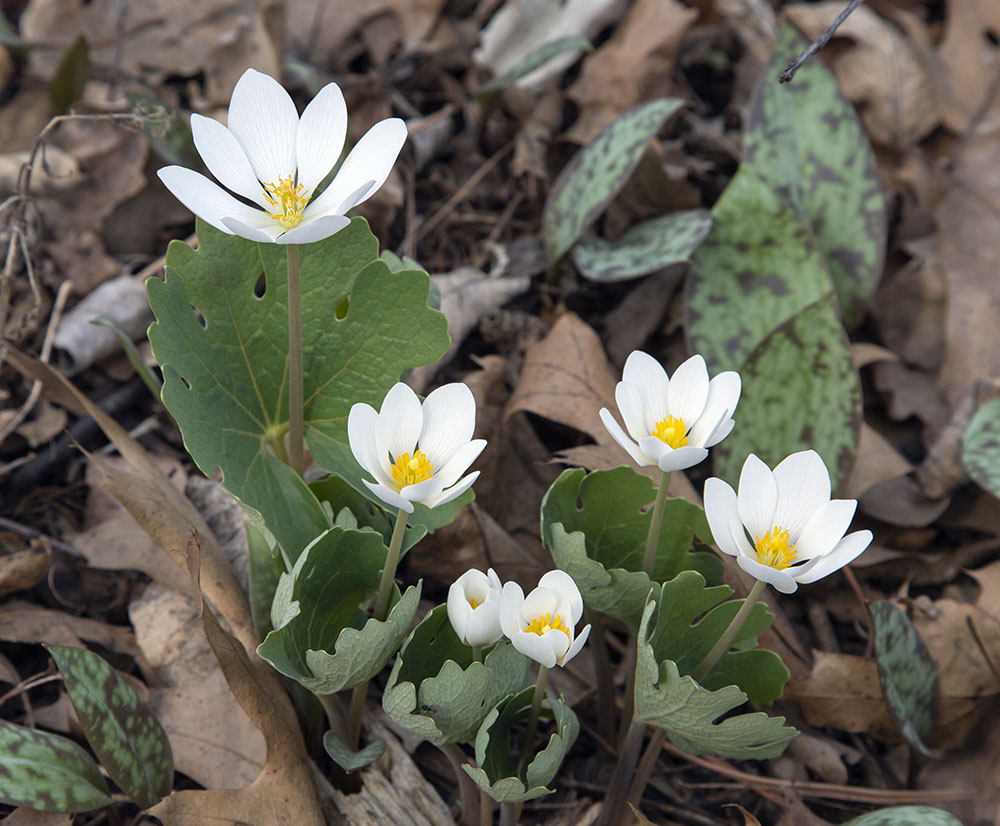
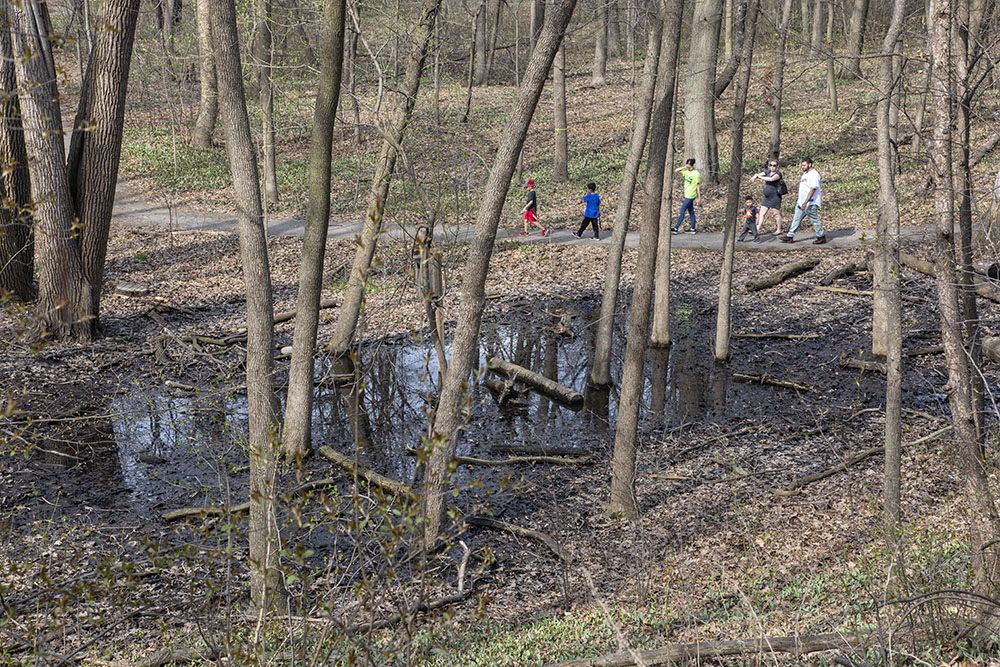
The hills on the Glen’s east and south sides serve very capably as sound barriers for the park, blocking most of the traffic noise from adjacent streets. There is an attractive little wooded valley up in the ridge at the south end that is open to State Street traffic noise, but in general the Glen offers tranquility along with its alluring natural attractions. The more I stop here, the more I appreciate what it has to offer. So stop and see for yourself!
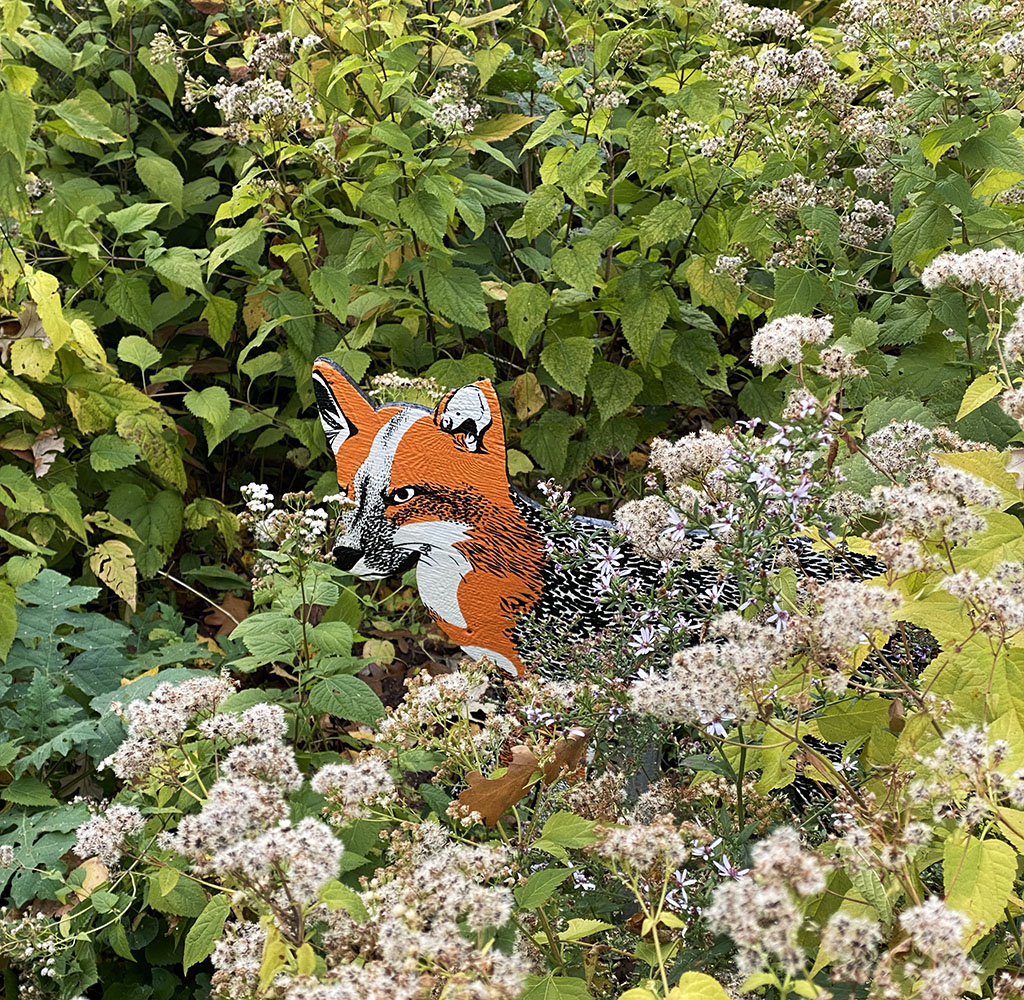
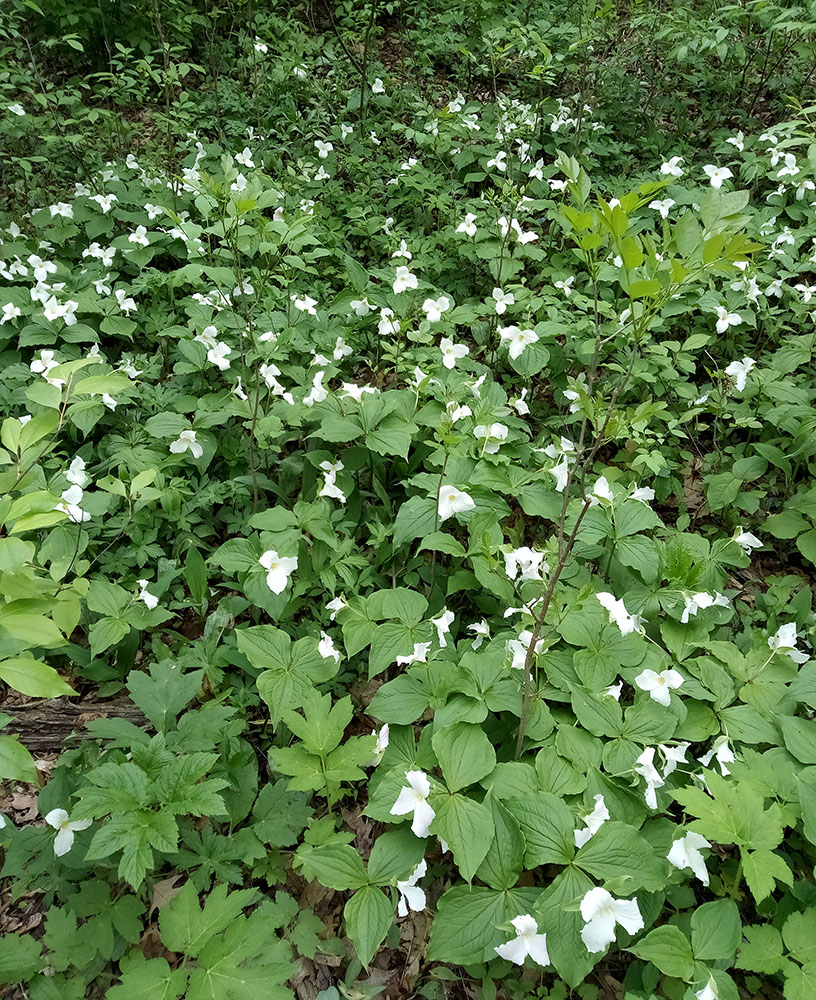
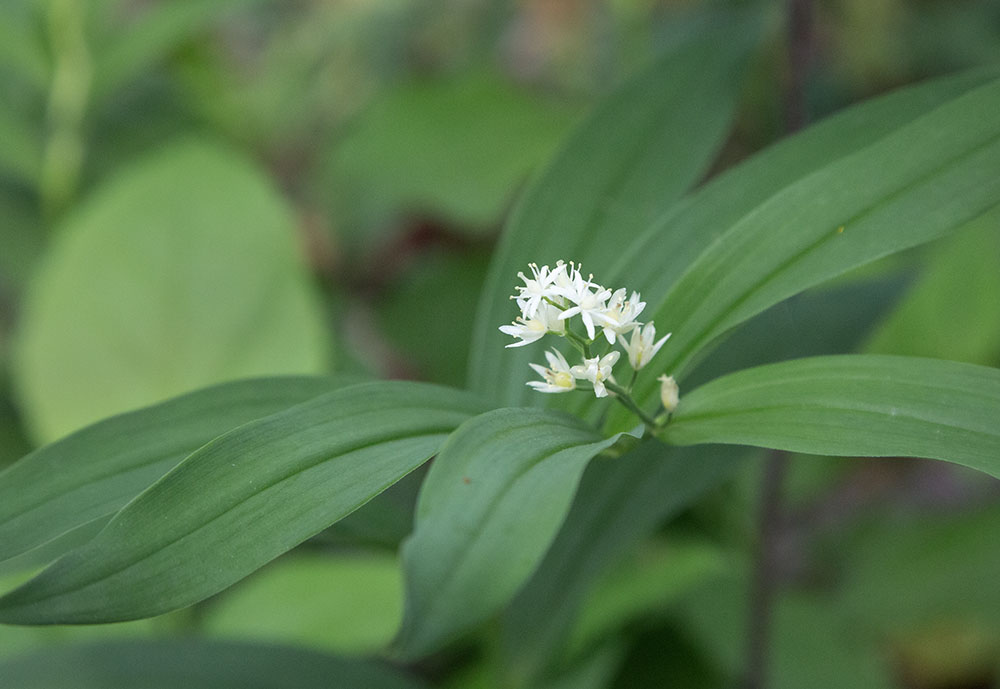
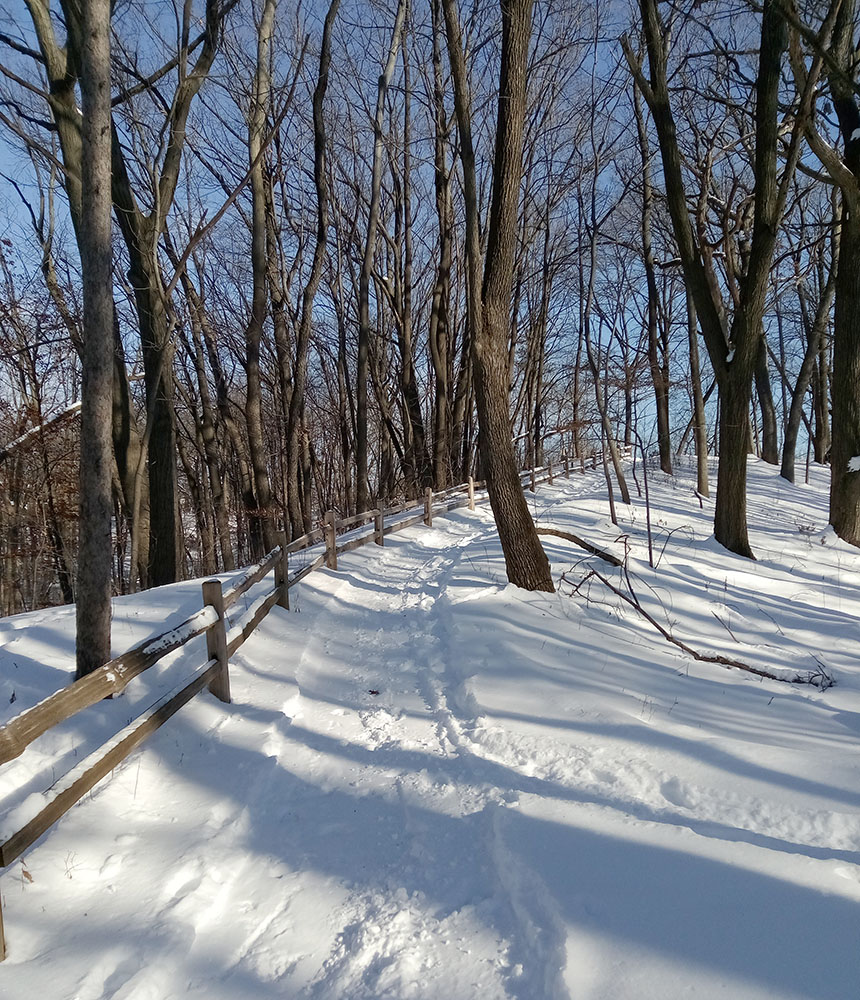
For more information about Hawthorn Glen go to our Find-a-Park page.
There are many more hidden gems for you to explore all over Southeast Wisconsin, which you can find on our Find-a-Park map.
*Milwaukee Recreation is a department of Milwaukee Public Schools that serves the entire City of Milwaukee, along with neighboring communities.
Jonathan Rupprecht is a devoted follower of The Natural Realm. You can reach him at jhr12447@aol.com. Eddee Daniel is a board member of Preserve Our Parks. All photos are by Eddee Daniel, except as noted.
2 thoughts on "Hawthorn Glen: A Hidden Gem Awaiting Discovery"
Comments are closed.


Beautiful photographs. So glad that buckthorn is being removed. Pullerbear tools are remarkably effective for taking out buckthorn. They are custom made in Canada.
Someone must be taking out garlic mustard thereby preserving trillium and blood root. Bravo!
Great story about the Glen! Living in Tosa, it’s my regular place for a good CV workout on the trails.